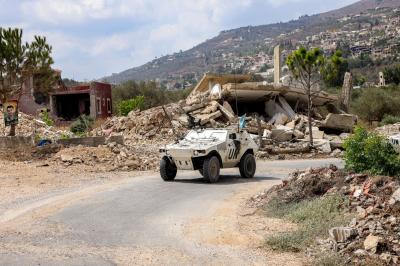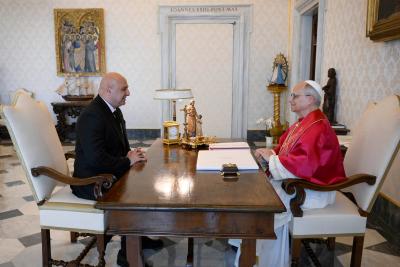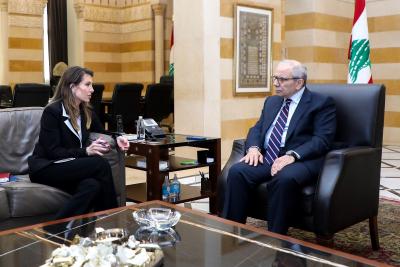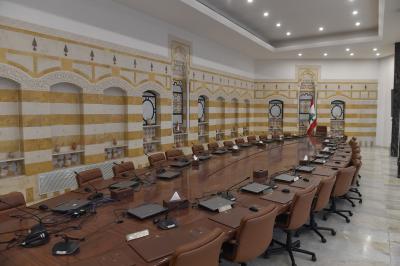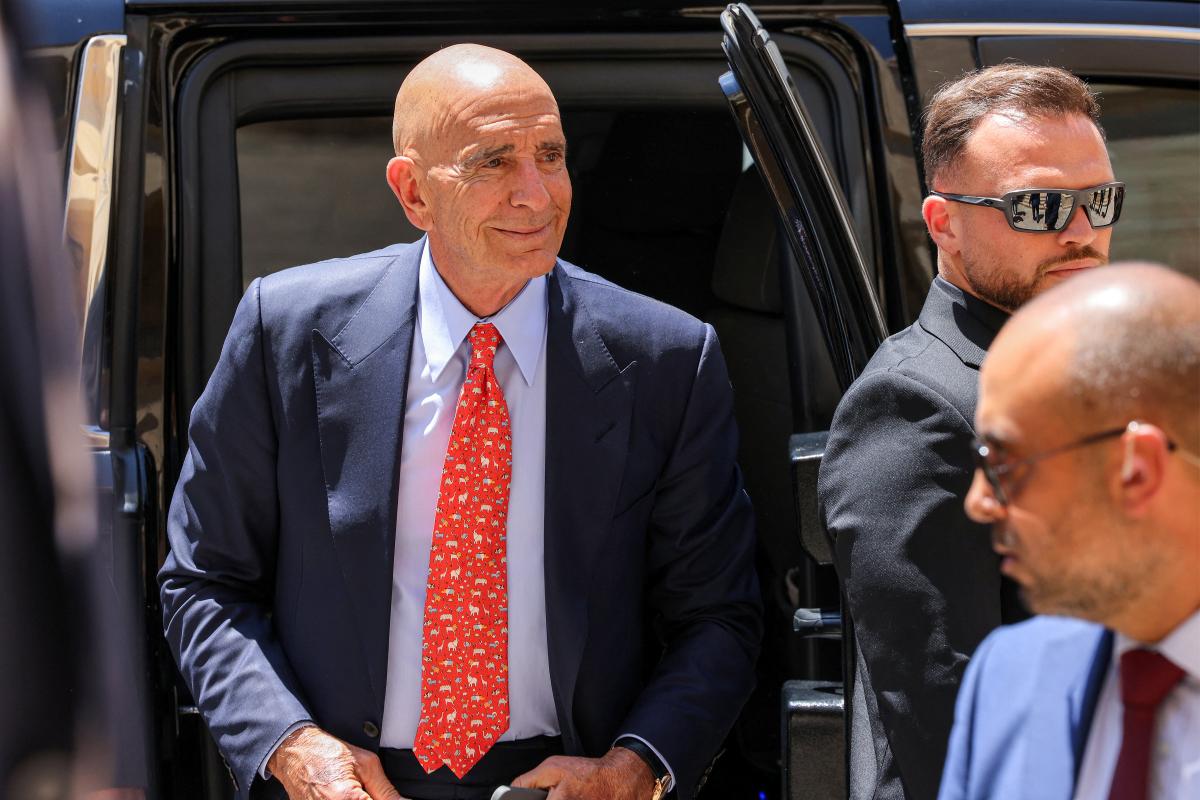Unlike past visits by U.S. officials, Thomas Barrack’s recent stop in Lebanon did not carry any major or alarming developments. It did not signal that Lebanon remains high on the international priority list as it once was.
Today, Washington’s main concerns in Lebanon boil down to two issues: the country’s relationship with Syria—particularly in light of ongoing border demarcation efforts—and the need to ensure Hezbollah’s disarmament.
Regarding the border, a key but largely unspoken issue lies in the Shebaa Farms area. The international community, especially the U.S. and Israel, is pushing for a resolution—namely, an official Syrian recognition of the area as Syrian territory. This would, in their view, strip Hezbollah of its pretext for armed “resistance.” Sources indicate the matter will be on the table during an expected visit by a Syrian envoy to Lebanon, though the timing of that visit depends on how the ongoing Israel-Iran war unfolds.
During his meetings in Beirut, Barrack addressed both the Shebaa Farms dispute and the issue of Hezbollah’s weapons. In a tone more suggestive than commanding, he voiced a wish for all arms to be placed under state control.
As the U.S. special envoy for Syria, Barrack met with key Lebanese leaders including the president, the speaker of parliament, and the prime minister, issuing a soft but clear warning about the region’s volatility. He didn’t bring ultimatums—just cautious advice and appeals for Lebanon to settle its affairs with Syria. He emphasized that Lebanon and Syria must establish a strong bilateral relationship, since instability in either country inevitably spills into the other.
He also encouraged Lebanon to move forward on demarcating its border with Syria—including the Shebaa Farms—while also broaching the issue of Syrian refugees and the need to reach a post-sanctions agreement on their status.
In sharp contrast to his predecessor, Morgan Ortagus, Barrack’s approach was calm and non-provocative. He made his points with patience and empathy. He clarified that, although his primary portfolio is Syria, Lebanon naturally falls under his current purview given the vacancy left by Ortagus, a position for which the U.S. has yet to name a replacement—something that may not happen before September.
In Baabda, Barrack reiterated U.S. support for Lebanese state sovereignty, particularly regarding the monopoly on arms. He appeared to understand President Joseph Aoun’s call for an Israeli withdrawal but made no promises in return—playing the role of the attentive listener.
This sense of understanding continued in Ain el-Tineh, where, in his meeting with Speaker Nabih Berri, Barrack warned that Hezbollah’s involvement in the Israel-Iran war could expose Lebanon to a new war. While avoiding deadlines, he implicitly stressed that resolving the Hezbollah weapons issue would accelerate Western assistance to Lebanon.
Amid global preoccupation with the escalating conflict between Israel and Iran, U.S. priorities may seem scattered, but one constant remains: Israel’s security. From that perspective, Barrack’s visit can be read as a preemptive warning—aimed at deterring Hezbollah from entering the war and, consequently, triggering an Israeli military campaign against Lebanon.
This warning, it should be noted, is not new. Hezbollah has received similar messages in recent weeks through various international envoys. The Americans, in particular, have been working to secure guarantees that Hezbollah will not get involved.
Barrack left a relatively positive impression on Berri. Unlike Ortagus, he was not confrontational. He listened carefully and showed interest in Berri’s assertion that the border demarcation file is already complete.
Though Barrack spent a day in Lebanon, the bigger regional picture—centered on the war in Iran and its potential repercussions—overshadowed his visit. Concerns about further Israeli provocations that could entangle Lebanon lingered in the air.
Barrack’s was a fact-finding mission that highlighted two primary issues: disarmament and the Syrian relationship. Washington’s message to Lebanon is clear—stay out of the Iran file and cooperate more earnestly on the weapons issue.
U.S. interest in Lebanon may be waning, but the warnings persist. Multiple international envoys have delivered a shared message: avoid war and contain Hezbollah’s arsenal. Hezbollah, meanwhile, continues to monitor developments in Iran closely, wary of giving Israel any excuse for further aggression. But as always, who can guarantee Israel won’t unilaterally escalate?
The American envoy offered no reassurances about Israeli withdrawal or halting hostilities. He brought advice and wishes—then left. The region remains on edge, its fate hinging on a handful of unresolved files Barrack did not claim to settle. Most pressing among them: whether the U.S. will intervene in the war, and where talks with Iran stand. On these matters, the envoy had no answers—yet they are precisely what will shape the course of a region teetering on the brink.
Please post your comments on:
[email protected]
 Politics
Politics
